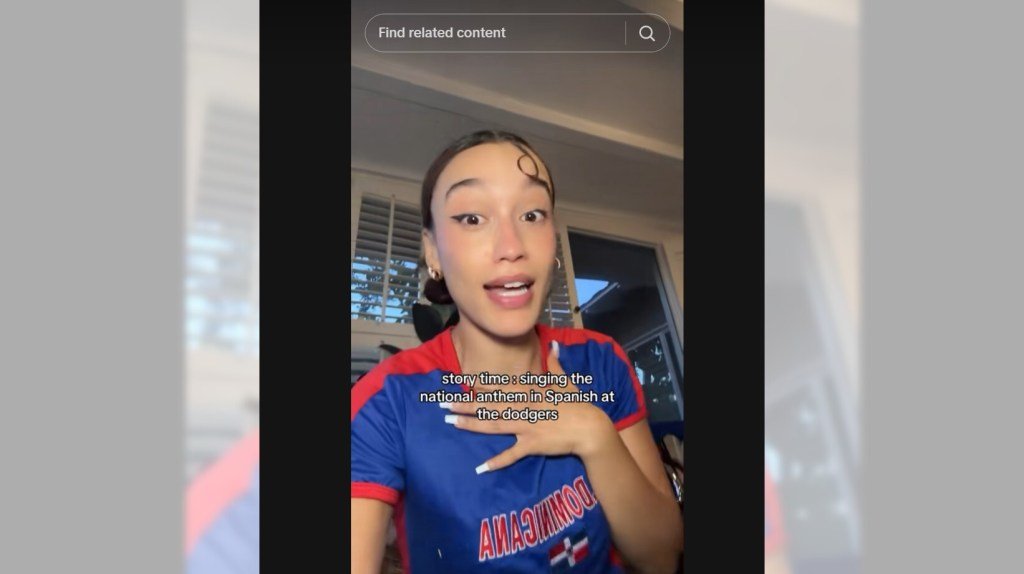Nezza’s Heartfelt Rendition of the National Anthem: A Moment of Cultural Significance
The Los Angeles City Council recently welcomed pop artist Nezza, also known as Vanessa Hernandez, to perform the U.S. National Anthem, a notable event that unfolded just days after she took a bold stance by singing the anthem in Spanish at a Dodgers game. This act drew mixed reactions, particularly after the Dodgers organization advised her against doing so. The performance at City Hall celebrated not only the anthem but also the rich cultural diversity represented in America.
City Councilwoman Monica Rodriguez proudly introduced Nezza during the presentation at City Hall, highlighting the significance of her cultural heritage as a proud American of Dominican and Colombian descent. “In a moment in time when our community continues to be targeted and racially profiled, she did something very profound,” Rodriguez commented. This statement underscores the ongoing issues surrounding race and identity in America, making Nezza’s performance especially impactful. This public acknowledgment served to validate Nezza’s actions, promoting a message of inclusivity and respect.
Nezza’s performance stirred considerable attention on social media following her Dodgers game appearance. Initially, there was uncertainty about which version of the anthem she would perform. After noticing the presence of numerous Latino fans in the stadium, she decided to share her heritage through her music. Initially, she faced opposition from a Dodgers employee, who asserted that the anthem would only be performed in English. Her decision to perform in Spanish ultimately resonated with many fans, amplifying the conversation around the significance of multilingual representation in American culture.
The reactions from fans and fellow community members reflected the broader societal concerns regarding immigration and representation. Many Dodger fans were discontented with the organization’s reaction to Nezza’s Spanish rendition, citing a lack of support for immigrants affected by local immigration enforcement. Following her viral performance at Dodger Stadium, Nezza’s manager received a call indicating that she would not be invited back, igniting controversy and conversation about freedom of expression and the treatment of artists in the public sphere.
In response to the situation surrounding Nezza’s performance, Dodgers manager Dave Roberts expressed a lack of information on the larger context of the issue, while player Kiké Hernandez straightforwardly voiced his concern through social media. He stated his emotional response to the mistreatment of the community, emphasizing that “ALL people deserve to be treated with respect, dignity, and human rights.” This sentiment resonated with many, reaffirming the importance of unity and empathy during turbulent times.
Moreover, Councilwoman Rodriguez acknowledged Nezza’s courageous choice to honor her roots and advocated for recognizing diverse interpretations of the national anthem. She mentioned that a Spanish rendition of the anthem, titled “El Pendon Estrellado,” was officially commissioned during President Franklin D. Roosevelt’s administration in 1945, establishing historical precedence for such renditions. The recognition of Arias’ translation has further fortified the cultural dialogue surrounding the anthem and its interpretations across linguistic barriers.
This entire episode highlights the need for a more inclusive understanding of national identity in the U.S. Nezza’s heartfelt rendition of the anthem, the discussions it has sparked, and the support from local officials like City Councilwoman Monica Rodriguez indicate that America’s narrative is evolving. The country is transitioning toward a more inclusive perspective that acknowledges the diverse voices and stories that contribute to its identity, ultimately fostering a greater sense of belonging for all.









